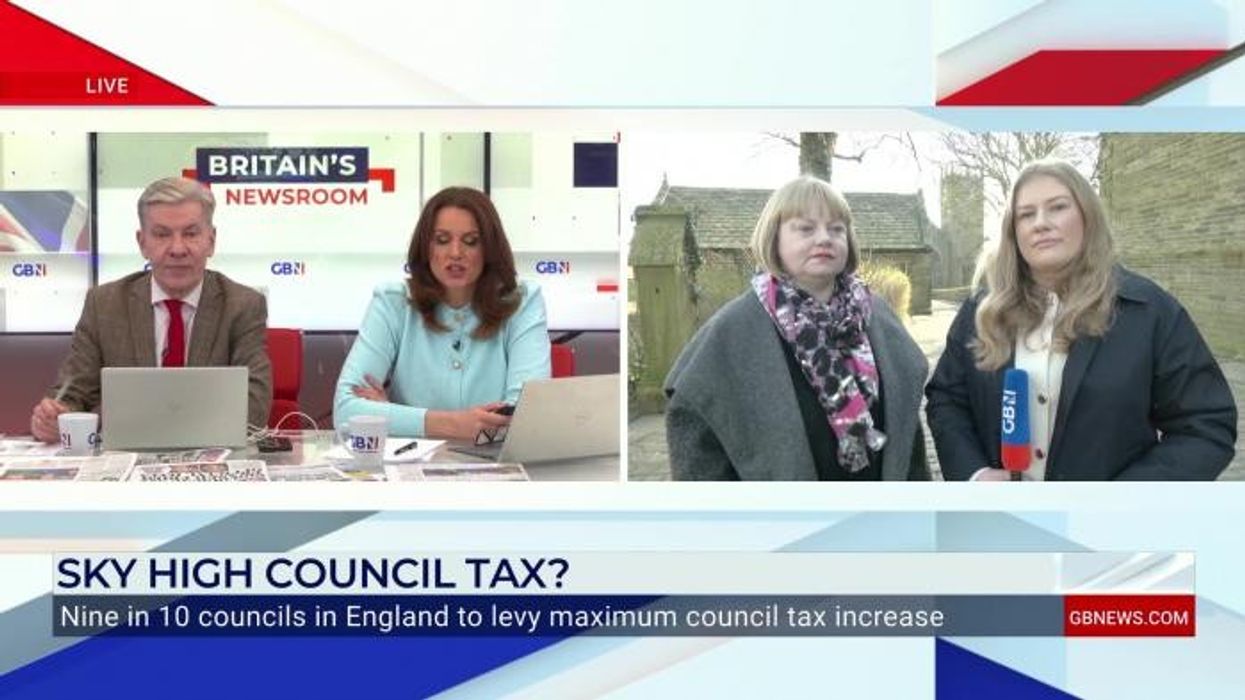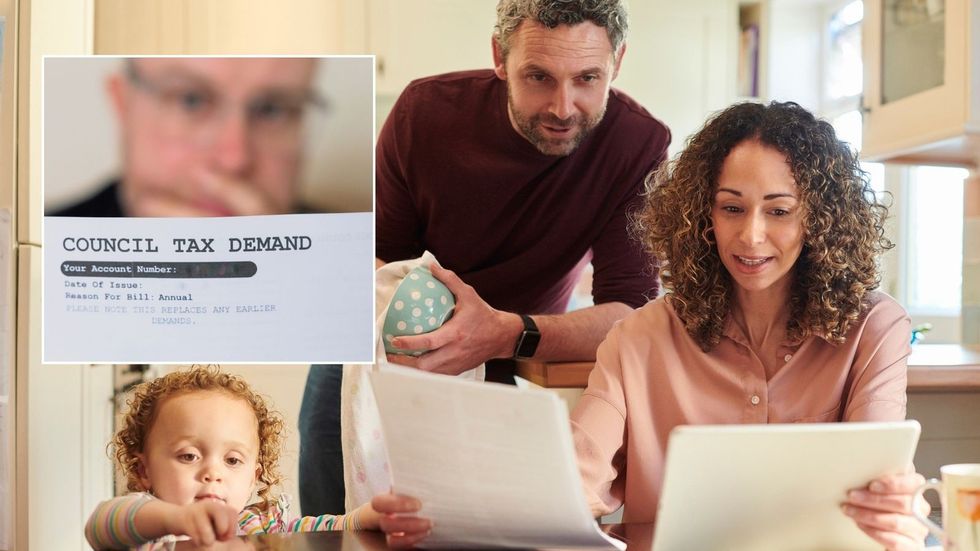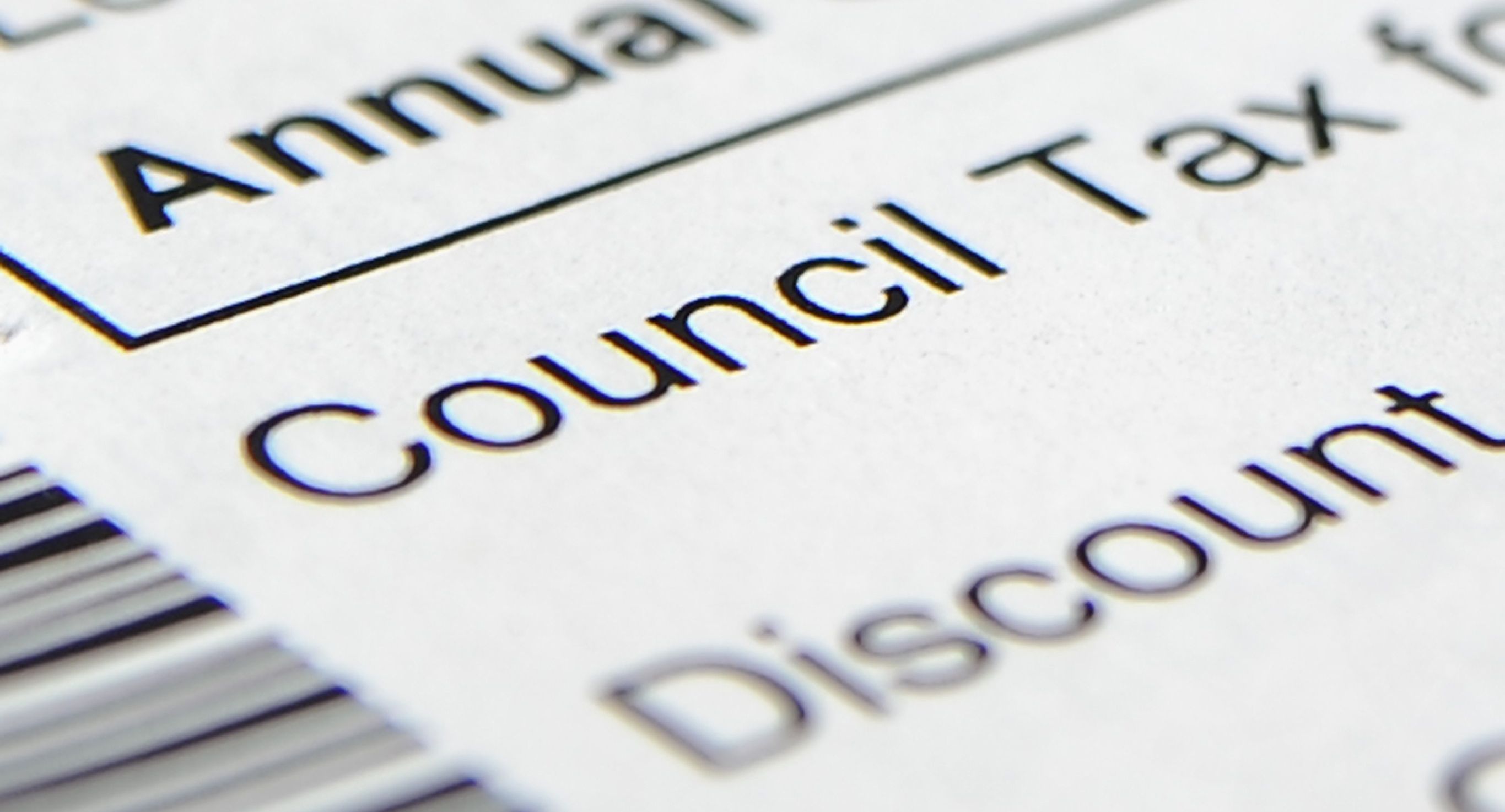Council tax alert: Millions could see monthly payments FALL under new shake-up

'We just can't afford it!' Bradford resident hits out as Council Tax to rise to maximum |
GBNEWS

Ministers say the changes will make council tax fairer and more flexible, especially for those on tight budgets
Don't Miss
Most Read
Millions of households across England could see changes to how they pay council tax under new proposals unveiled today by the Labour Government.
A major consultation has been launched to review the current system, which aims to ease financial pressure on working families and overhaul what ministers describe as an "outdated and unfair" system.
Under the new proposals, council tax payments would be spread over 12 months by default rather than the current 10-month period.
This would reduce monthly payments for the average band D household by approximately £38, according to the Ministry of Housing, Communities and Local Government.
Households would still retain the option to pay over 10 months if they prefer. The consultation, which runs until 12 September, also includes plans to overhaul debt collection practices, make it easier to challenge council tax bands, and modernise support systems.
Minister for Local Government Jim McMahon said the reforms put "working people first" and aim to make council tax "fairer, more transparent and easier to manage."

The Government is also proposing significant changes to debt collection procedures
| GETTYThe Government is also proposing significant changes to debt collection procedures. Currently, missing just one council tax payment can trigger a demand for the entire year's bill upfront, with councils able to send bailiffs after just six weeks.
The consultation examines capping additional costs and ensuring households receive information about available support when struggling with payments.
"No commercial lender is allowed to behave like this, meaning constituents are treated worse than consumers," said Martin Lewis, founder of MoneySavingExpert.com.
The reforms would also simplify the process of challenging council tax bands, addressing concerns that approximately 400,000 people may be paying too much due to incorrect banding.
Additionally, the Government plans to rename the "severe mental impairment" discount to "significant cognitive impairment" discount, modernising outdated terminology.

The Government has unveiled plans to redistribute council funding from wealthier areas to struggling authorities
| GETTYAlongside the payment reforms, the Government has unveiled plans to redistribute council funding from wealthier areas to struggling authorities. Deputy Prime Minister Angela Rayner is leading the initiative to ensure more Government funding reaches areas with the highest need.
A Ministry of Housing, Communities and Local Government official told The Times the current system creates "perverse outcomes, where some authorities are struggling to provide basic services whilst others are better off."
The new approach would avoid rewarding councils that have maintained low tax levels due to stronger tax bases. This redistribution could force councils in affluent areas to increase council tax bills to compensate for reduced central funding.
Nine in ten councils already enforced the maximum 4.99 per cent rise in April, with six authorities granted permission for even higher increases.
Lewis, who has campaigned for council tax reform for nearly two decades, welcomed the consultation. "It's not often that I get to say the Government has listened, but it has," he said.
The money expert highlighted that current debt collection methods "hurt millions and disproportionately affect those with mental health problems." He criticised the system where missing one monthly payment can trigger demands for the entire year's bill within three weeks.
"Ridiculous, how can people who can't afford to pay for a month, suddenly pay for a year?" Lewis said. He noted that councils can call in bailiffs after just six weeks, "racking up charges on charges."
Lewis described many parts of the council tax system as "broken" and expressed delight that the government had "rapidly launched this long-due consultation."

Martin Lewis described many parts of the council tax system as "broken
| PAThe Local Government Association responded cautiously to both consultations. Cllr Pete Marland, chair of the LGA's Economy and Resources Board, acknowledged that "an opaque funding system has weakened councils' financial sustainability and vital public services."
He warned that "different councils will have contrasting views on these proposals" and stressed that "individual councils will need to know the implications and a transitional mechanism is crucial to avoid putting services at risk."
On council tax collection, Marland noted that all councils already allow 12-month payment periods but welcomed working with government on balancing "the collection of vital revenues with measures that help those struggling to pay."
The LGA emphasised that council tax income remains "an increasingly important funding stream for the local services millions rely on every day."
More From GB News










